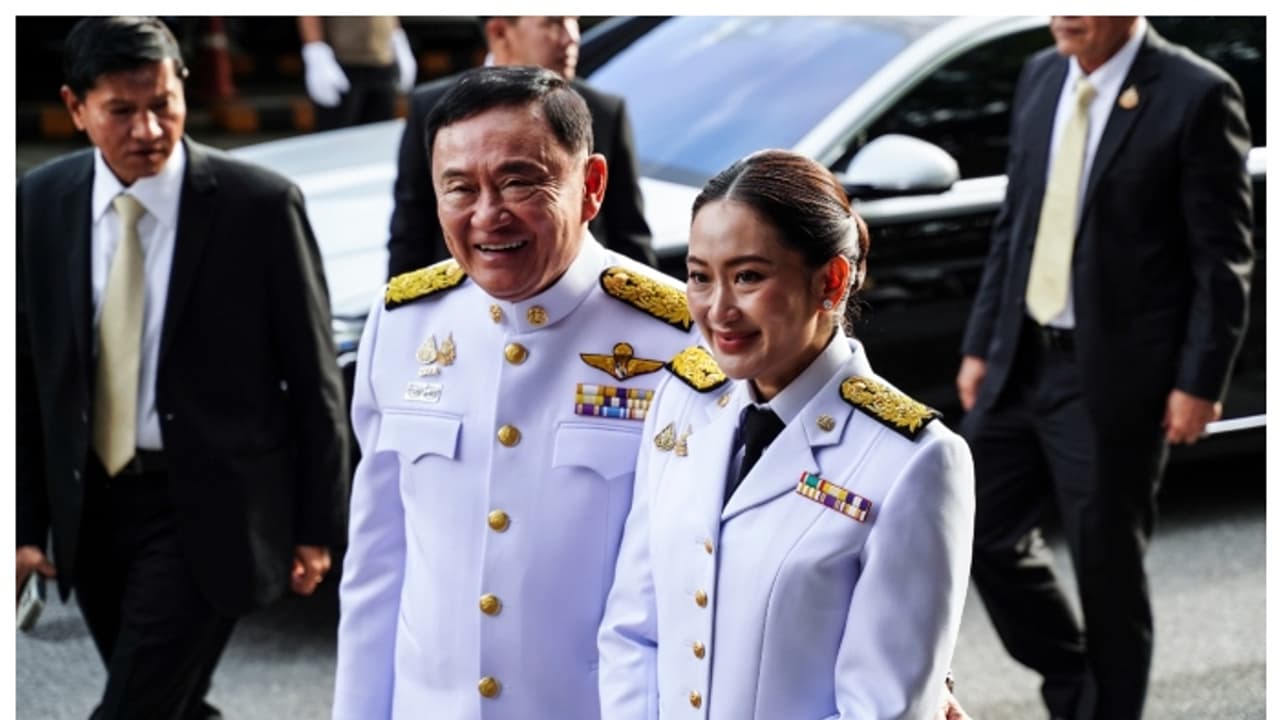Thaksin Shinawatra, the billionaire-turned-populist who reshaped Thai politics, now faces a fresh prison term, marking another dramatic twist in his family’s turbulent political legacy
Loved and loathed in almost equal measure, Thaksin Shinawatra reshaped Thai politics in the early 2000s with populist programs that secured him a loyal following among the rural poor. But this success also made him a target for Thailand’s conservative elites and establishment forces, who viewed his leadership as corrupt, authoritarian, and a threat to the country’s social order.
Now, at 76, Thaksin has once again been ordered to serve a year in prison — the latest twist in a decades-long political and legal saga that has repeatedly upended Thailand’s politics and the fortunes of his family.
From business tycoon to populist leader
Born in 1949 into a wealthy ethnic Chinese family in Chiang Mai, Thaksin trained as a police officer before amassing a fortune in telecommunications. His company, Shin Corp, became a major player in Thailand’s booming mobile phone industry, laying the foundation for his wealth and eventual entry into politics.
He founded the Thai Rak Thai party in 1998 and won the 2001 election, becoming the country’s first prime minister to complete a full term. With Thailand still reeling from the Asian financial crisis, he cast himself as a businessman who could lift rural villagers out of poverty. Subsidized loans, healthcare schemes, and debt relief cemented his popularity.
But his hardline “war on drugs,” which rights groups say claimed thousands of lives through extrajudicial killings, drew widespread condemnation abroad.
Even so, his populist agenda propelled him to a landslide reelection in 2005. The following year, allegations of corruption — particularly over the tax-free sale of Shin Corp shares — triggered mass protests. Amid the turmoil, the military staged a coup in September 2006 while Thaksin was abroad, abruptly ending his government.
Exile, influence, and unfinished sentences
After the coup, Thai Rak Thai was dissolved, but Thaksin’s political influence endured. His sister Yingluck later became prime minister in 2011 under the rebranded Pheu Thai party, which many believed Thaksin still controlled from abroad.
Despite having his assets frozen in 2007, he continued building his international profile, famously buying Manchester City football club before selling it for a substantial profit to investors from Abu Dhabi.
Thaksin lived in self-imposed exile for years, mostly in Dubai, but never stopped shaping Thai politics. Under the pseudonym “Tony Woodsome,” he frequently addressed supporters online, criticizing governments that opposed him and encouraging his base.
When he finally returned to Bangkok in August 2023, he received a hero’s welcome from loyalists — on the same day Pheu Thai re-entered government through a controversial alliance with military-backed parties. He was arrested immediately, sentenced to eight years in prison, and transferred to a police hospital within hours on health grounds. Within days, the king reduced his sentence to a single year. By February 2024, he was back in his Bangkok home, raising questions about whether he had ever truly served time behind bars.
This week, however, Thailand’s Supreme Court ruled that Thaksin had not properly completed his sentence and ordered him to serve one year in prison.
The family legacy under pressure
Over the years, Thaksin’s family has carried on his political project. His sister Yingluck was toppled in 2014, while his daughter Paetongtarn emerged as the face of Pheu Thai in recent years. She became prime minister in 2024, but was dismissed last month by the Constitutional Court over her handling of a border dispute with Cambodia.
Her removal opened the door for Anutin Charnvirakul of the Bhumjaithai Party to take office. He has pledged fresh elections within four months, giving Pheu Thai another chance to rally its supporters — though analysts say the party’s influence is fading.
After the latest court decision, Paetongtarn expressed that, despite setbacks, she still regarded her father as the spiritual leader of their movement. She emphasized that his role in shaping modern Thai politics would be remembered as historic, even if his dynasty now finds itself on the defensive.
(With Imputs From AFP)
